by Alex Shtaerman
As an active writer and poet for nearly four decades, Bruce George’s work has appeared in a wealth of major magazines, anthologies as well as a host of other literary publications. Also a co-founder of the award winning HBO series Def Poetry Jam , Bruce has effectively championed literary self-expression as a means towards attaining goals and engaging in progressive social activism over the course of his entire career. However, with a remarkable list of accolades already to his credit, it may be his latest project that proves to be among Bruce George’s most worthy endeavors to date. The Bandana Republic , as it would ultimately be called, is a recently published literary anthology compiled by Bruce George and Louis Reyes Rivera from the writings of active as well as former gang members and their affiliates.
Featuring short stories, poems, quotes and an abundance of other contributions, The Bandana Republic reflects the creative and intellectual sides of individuals who come from the undercurrent of urban centers and are more often than not dismissed as unworthy to even be heard, much less published. ” What the average reader is going to get from the book is they are going to see that people that are in gangs are not much different from themselves”, asserts Bruce George; “they laugh, they cry, they have fears, they have joys, they have hopes, they have experiences that are good, bad and indifferent”. With additional selections from artists such as Dead Prez, Ruby Dee, the late Oscar Brown Jr. and a foreword by Hall of Fame football running back and longtime social activist Jim Brown, The Bandana Republic encompasses a broad spectrum of thoughts, ideas, feelings and perspectives – a spectrum that can only be truly experienced by reading the book!
RIOTSOUND.COM: Just to give everyone some insight on your personal background – you were born and raised in New York City and you’ve had a long and distinguished career as a writer, producer and poet. Also you are one of the co-founders of the critically acclaimed HBO series Def Poetry Jam . As far as your work in social and community activism, what would you say were some of the driving forces that ultimately led you down that path?
BRUCE GEORGE: What got me into activism was the fact that the playing field has never been level, for myself as well as other people in the struggle. And as a result of that, I have always had this propensity to just really agitate the system as much as possible towards making a change. Mahalia Jackson said that what we have is “trial and tribulation music”. The Black Panther Party said that “art is an indispensable tool of revolutionary struggle”. So I realized that by being a person of African descent, a person in the struggle, that we [African Americans] were never given the luxury of art for the sake of art. Our art to us is political. So what we do is we use our art, and I have been using my art as a way towards self determination.
RIOTSOUND.COM: Do you see it as a somewhat regrettable reality that a lot of the great African American artists simply didn’t have the luxury of creating art for the sake of self expression and were put into a position where their works were almost always viewed within some sort of political context?
BRUCE GEORGE: Well, all art is political, and I’ve had people challenge me [in disputing that notion]. Whether you write a poem that talks about politics or doesn’t talk about politics or if you make a drawing that eludes to politics or doesn’t elude to politics, all art is political in this sense: just the mere fact that you consciously make a decision to not write about something, that is political, that in and of itself is a decision that you’ve made, and that is a political decision that you have made.
Now, being that all art is political, it is the job of the status quo to keep the artist disenfranchised and out of the status quo; to keep the artist marginalized and to keep the artist in check. That is the nature of the status quo or the powers that be. So, the powers that be, they use the critic as a gatekeeper to the state which is a gatekeeper to the ruling class. Whether it’s the fashion critic, the movie critic, the literary critic – you name the critic and I can point a finger at that critic and let you know in no uncertain terms the nature of that critic’s job, which is to “gate-keep”. So if you are in the fashion business and your fashion doesn’t fall in line with the status quo, you’re going to get a bad review. If your film doesn’t fall in line with the status quo, you’re going to get a bad review. You see – if your art, whatever it is, doesn’t fall in line, it’s going to get a bad review.
So, it’s one of those things where this so-called capitalistic society that we’re in, this so-called fair society that they want to claim that we’re in, is really a capitalistic society that’s based upon the opulent ruling [everyone else]. Noam Chomsky said it best when he said that we don’t live in a democracy, rather we live in polyarchy, where the opulent minority rules the majority. It’s all about the bottom line and privilege. It’s about redistributing the wealth from the wealthy to the wealthy. So the way society is set up is to marginalize and dichotomize the [greater] world, where you have the “rich” and the “poor”. So when it comes to art, or the artist – the status quo would love to keep the artist starving – because as long as you’re starving you don’t have a voice. If you don’t have a voice you don’t have a vote. If you don’t have a vote you’re out of the rational discourse, you’re out of power. And it is this phenomenon that is so prevalent in the world we live in that got me into activism.
“the problem is that the status quo or the powers
that be will use a ‘war on drugs’ or a ‘war on gangs’
as code words that really amount to a war on the
poor, a war on Latinos, a war on Blacks, a war on
the disenfranchised, a war on the impoverished”
RIOTSOUND.COM: When you decided to work on The Bandana Republic , how did you initially come upon the concept of taking creative writing from gang members of various affiliations and assembling the works together into a single literary anthology?
BRUCE GEORGE: Well, The Bandana Republic is a literary anthology by gang members and their affiliates. I’m the founder and served as the managing editor, Louis Reyes Rivera is the co-founder and was the editor, and also, the [NFL] Hall of Famer Jim Brown wrote a foreword to it. Jim Brown is the founder of Amer-I-Can, which is based out of L.A. and is an organization that deals with rehabilitating gang members and former gang members. It’s an organization that helps foster anti-violence [initiatives] and also assists in helping former gang members get re-acclimated within the community.
The Bandana Republic was created out of activism, just like Def Poetry Jam was created out of activism – as a way of lending a platform where you have activists who are able to express themselves – that’s the Def Poetry Jam version of it – and with that affirmation I’m speaking from my co-founder position. And then, with The Bandana Republic , speaking from my founder position – coming from New York and growing up in New York all of my life, I’ve been in various so-called “gangs” or “crews”, but in reality they’re not really gangs. The word “gang” is essentially just generic terminology, what we’re really talking about is street tribes or street organizations. Because if you were to look at the Webster’s English Dictionary definition of a “gang”, the police department would fall into that definition, the fire department would fall into that, fraternities and sororities would fall into that, you name it, politicians would fall into it, not to mention the Skull and Bones [society at Yale University] that John Kerry and George W. Bush were a part of. I don’t want to call him “President” because he stole the Presidency, so he doesn’t get that from me.
So The Bandana Republic was created out of activism as a way of getting brothers and sisters and people from all background and colors, and pulling them into the literary fold. The Bandana Republic is an anthology that includes poetry, prose, short stories, quotes, sayings, you name it. It’s my way of giving back to the community and creating a voice for them and it’s something that’s never been done before.
We also have selections in the book from celebrities such as Ruby Dee, the rap group Dead Prez is in there, the late great Oscar Brown Jr. who was a musician, poet and actor is in there, we have The Last Poets in there, we have a selection from Malik Yoba who is an actor. Also we have something from Fred Hampton Jr. who’s father is the late great Fred Hampton Sr. of The Black Panther Party out of Chicago . There’s also a selection from a famous writer by the name of Piri Thomas who’s written the book called Down These Mean Streets , he’s featured in The Bandana Republic .
And of course we have every gang you can imagine in it – and it’s a literary first in the sense that when you look at gang literature it’s usually biographical or autobiographical in nature. Even gang books that might remotely resemble an anthology, usually they just have one or two gangs in it, like the Crips and the Bloods or the Latin Kings and the Bloods, or something of that nature. The Bandana Republic has the Crips, the Bloods, the [Latin] Kings, the Netas, La Familia, it has People Nation, Folk Nation, Gangster Disciples, Vice Lords, Gaylords, Surenos , Nortenos , you name it. And not one of the gang members [featured in the book] has complained about going in there with any of the other gang members featured. This book doesn’t glorify gang violence, it doesn’t glorify gangs, it’s just a platform for them to express themselves. It doesn’t have any central theme whatsoever because we wanted to make sure this book was unfettered in terms of each contributor having the ability to speak his or her own mind. It does cover social, political and interpersonal themes.
RIOTSOUND.COM: What was the process like as far as gathering literary works from such a broad assortment of individuals? Did you seek out certain people that you knew had talent, did people come to you directly, did you encourage certain individuals to write and submit works? How did you acquire all of the diverse literary works that would eventually come to comprise The Bandana Republic ?
BRUCE GEORGE: It was a process and I wanted it to be organic. I’m a firm believer in enjoying the process. Ben Sweetland said that “success is a journey, not a destination”. I enjoy the journey and I don’t care how long something takes as long as it [reaches a final outcome]. So it was something where Louis Reyes Rivera and myself, we allowed [the project] to take shape one contributor at a time. A lot of gang leaders are activists, so I’ve always had the philosophy that if you have the head then you got the tail. So, what I would do is I would go up to the top, to the shot callers and the O.G’s and I would get them involved. Then they would get their underlings involved and then from there [it took off]. I myself am an activist and I’m an active activist, so due to that fact I’m also connected with other activists and many of those activists happen to be gang leaders. And as a result of that, I would reach out and touch them and they in turn would reach out and touch their underlings and their soldiers. And, by the way, gang leaders have vowed to me that they are going to make The Bandana Republic required reading for their soldiers.
RIOTSOUND.COM: In your view, what would the average reader, perhaps someone who is not familiar with street culture, get from reading The Bandana Republic ?
BRUCE GEORGE: What the average reader is going to get from the book is they are going to see that people that are in gangs are not much different from themselves, that’s first and foremost; they laugh, they cry, they have fears, they have joys, they have hopes, they have experiences that are good, bad and indifferent, they go to war just like countries go to war. They are very protective of themselves and their family members just like we are protective of ourselves and our family members. And what’s really going to stick out is the fact that regardless to the gang member that’s in the book that adds his or her selection, there’s a common thread among all of the writing in The Bandana Republic , whether it’s a quote, a poem, a short story or a saying, it has to do with the social condition that they are all under, which is suppression, gentrification, police brutality, poverty, racism, bigotry or what have you – capitalism, the whole nine. So even through you have the heavy Black on Brown violence in L.A, the real deal is they really don’t hate each other, because they don’t know each other. The real deal is that it’s coming down to economics, it’s about territory. Because if you look at gang violence, the highest proliferation of gang violence is in impoverished neighborhoods; so poverty is the main culprit.
Gang violence is a symptom of the problem. The problem is capitalism, the problem is racism, the problem is gentrification, the problem is police brutality, the problem is that the status quo or the powers that be will use a “war on drugs” or a “war on gangs” as code words that really amount to a war on the poor, a war on Latinos, a war on Blacks, a war on the disenfranchised, a war on the impoverished. That’s what it’s really about – keep them in their place, keep them out of the rational discourse, keep them out of the political discourse. I mean, why are there so many ICE raids [Immigration and Customs Enforcement raids] happening now on our Latino brothers and sisters all across the country? Why are they so concerned about immigration now when they weren’t concerned about that before? Because of the numbers, because there are over twelve million of them within the United States and that voting block is gaining strength politically. There’s strength in numbers and because their numbers have increased, now all of sudden, “ Houston we have a problem!”
That’s very hypocritical of this government because you didn’t mind [the same people] cleaning your homes, you didn’t mind them being a Nanny to your children , mowing your lawns etc… You didn’t mind them doing the dirty work. But now that their numbers have increased to the point where they can use that as leverage, politically, socially and otherwise, now it’s perceived as a problem. And Pat Buchanan in his book called The Death of The West spelled it out; he spelled it out in black and white, no pun intended. So that’s the deal with that.
RIOTSOUND.COM: Your ultimate goal, of course, is to help offset gang violence by creating an outlet of expression for youngsters that live in at-risk communities. As far as going into a neighborhood and presenting this kind of ideology to young people as an alternative to some of the things they may be presently involved in, how does that actually happen on a grass roots level, where the kids are getting involved and buying into it?
BRUCE GEORGE: It’s happening and I’m very excited. I’m very excited about The Bandana Republic because it’s growing by leaps and bounds throughout the streets. First of all, it has a lot of street credibility because of the people that we have in the book. Even the cover alone, with all those different color bandanas and the gang symbols on it and the blacktop hat and the cane; I had to get permission to go with that cover from shot callers or else I wouldn’t be speaking to you right now, I’d be dead. So that’s first and foremost. And secondly the book has street credibility because of the O.G’s that’s in the book and it’s been sanctioned and blessed and saluted by them.
Also [the book] is known on the streets because we’ve had a MySpace page for years now and we have the highest proliferation of gang members on all of MySpace. The page is www.myspace.com/theBandanaRepublic – so it’s getting out there every single second of each day and more and more people are gravitating towards it. And actually they’re taking pride in it because a lot these gang members have never been published before and people didn’t care and don’t care about what they had to say and what their feelings were. But now, because of the fact that there’s an anthology that has so many different gangs in it and it represents their gang – nine out of ten times their gang is represented or their set is represented – it makes them want to get involved.
And this phenomenon is nothing new; some of the best literature, some of the best poetry, some of the best art comes from the streets. Look at Hip-Hop, Hip-Hop is a prime example of that; from beatboxing to turntableism to graffiti art – you can call it graffiti but it’s art. Our Latino brothers, their gang prison art – Salvador Dali, they put him to shame, they put Picasso to shame, that’s how fabulous that art is. So with The Bandana Republic , it’s basically using literature – and we already know some of the best poetry comes out of prison, some of the best literature comes out of prison. So what The Bandana Republic is doing is riding on the shoulders of all those artists that were in these street organizations that came before it, and we have to pay homage to those individuals for trailblazing the way for a book like The Bandana Republic to come about.
“a lot these gang members have never been published
before and people didn’t care and don’t care about what
they had to say and what their feelings were. But now,
because of the fact that there’s an anthology that has so
many different gangs in it and it represents their gang –
nine out of ten times their gang is represented or their
set is represented – it makes them want to get involved”
RIOTSOUND.COM: When it comes to a project like this, which is literary based, do you feel that while it’s obviously fostering self expression, it may also be leaving certain people out of the fray; individuals who perhaps want to express themselves but whose primary talent simply does not reside in the written word? Is there a message in The Bandana Republic for those people as well?
BRUCE GEORGE: Sure, it’s all about hope. First of all, with The Bandana Republic , every last contributor in the book gets an offered discount for the book, that’s 50% off plus free shipping. So automatically, Soft Skull Press [is contributing to getting the message out there], and the website for them is www.SoftSkull.com. They are based out of Brooklyn and they are a liberal press that had taken a risk with us. They are a remarkable publishing house because we’ve had major publishers turn us down…
RIOTSOUND.COM: What were some of the reasons that other publishers had turned you down for?
BRUCE GEORGE: They turned us down for the same old reasons that mainstream America is against anything that’s against the status quo.
RIOTSOUND.COM: So they basically turned you down because they had certain negative perceptions about the content of the book?
BRUCE GEORGE: Yes, because [to them] it was too risky, it’s too dangerous, it’s perceived as being way way way outside of the box; you can’t control it, it’s not controllable, you know. So [as far as giving individuals hope in a broader sense], it’s one of those things where the art itself, meaning the book, is fostering hope. You have people that are in the book that are talking about writing their own memoirs now. You have people that aren’t in the book that are talking about wanting to go into the next volume. So it’s motivating people to write and it’s motivating people to put their thoughts down on paper. Just like in certain professions – like in the profession of psychiatry or psychology where a person would go into therapy, you would call that “the talking cure”. We would consider this [approach] as “the written cure”. Their writing has a therapeutic element to it.
RIOTSOUND.COM: If subsequent volumes of The Bandana Republic are published, would you consider including visual art as well so that potential contributors can have an even broader scope to work in?
BRUCE GEORGE: Definitely, if we are granted with another volume we plan on including gang art. We wanted to do it in the first volume but we didn’t get enough art in time, but we would love to include art. Also we would love to include more female gang members. And right now we think we are going to get a few more volumes done because right now [ The Bandana Republic ] has reached a fever pitch in terms of the buzz, the buzz is ridiculous. The book is sold throughout the country, outside of the country, and we also have an online version of the book through Audible Incorporated, which is a publicly traded corporation based out of New Jersey. They blessed us with the online version and it’s currently on iTunes as we speak; the legendary Chuck D did part of the voiceover for it.
Louis Reyes Rivera and myself, we plan on doing a theater production of the book and we also plan on doing a movie production of the book, at which point Malik Yoba is going to be one of the directors, it’s going to be his directorial debut – the actor Malik Yoba from New York Undercover. So we have major plans for this book and we’re very excited about where it’s going, it’s something that’s very timely.
RIOTSOUND.COM: As we’ve talked, the internet has come up a number of times; so the question I would like to ask you is: as an activist how do you view the advent of the internet and its potential effects on at-risk communities? On one side you have the argument that the internet may help promote gang recruiting and other nefarious activities and thereby augment the problem that already exists, however, on the other hand one might also argue that the internet is a positive force because it also provides an additional recourse through which activists are able to reach the youth and steer them away from what may otherwise be a destructive lifestyle.
BRUCE GEORGE: I think the internet has been an amazing tool to help spread activism. Look at the grass roots campaign that President Obama was able to utilize during his run for the White House by using the internet, by raising money through the internet, by organizing through the internet. I think the internet is sort of like a double edged sword in a sense that it can be used for evil and it can be used for good. It can be used to proliferate good just as it can be used to proliferate bad things. But, my attitude is this, you have what you call net-bangers, you have individuals that are in gangs and then you have these wannabes that are really not gang members but they bang online. But it’s better to have them banging online than to have them banging in the streets, you know. Like with The Bandana Republic page on MySpace, we have some net-bangers on there who’ll curse each other out like crazy. As long as they’re doing that online, that’s fine, nobody is getting killed at the end of the day, some feelings might get hurt [laughs]. They might hurt each other’s feelings, you know, but they will live to tell about it. So that’s my take on it. I’d rather have someone write a poem than shoot somebody. And by the way, you can’t write a poem and shoot somebody at the same time.
For more new and info on The Bandana Republic and Bruce George stay tuned to www.myspace.com/thebandanaepublic and www.myspace.com/brucegeorge


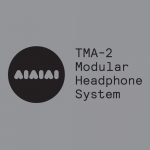














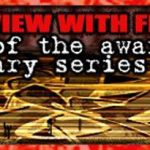
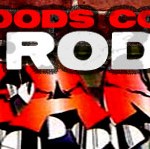
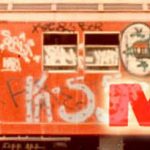
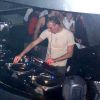
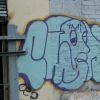
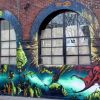
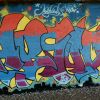
Comments